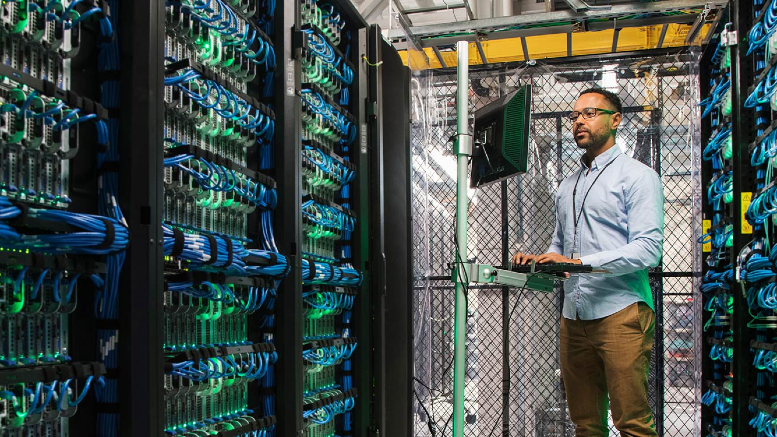Americans Rate National Security as New Top Security Concern While Fears over Hacking Rise Dramatically, According to Unisys Security Index™
Leading security barometer - the only recurring snapshot of security concerns conducted globally - shows overall anxiety among U.S. consumers has risen substantially since last survey three years ago
WASHINGTON, June 20, 2017 – U.S. consumers rate national security in relation to war or terrorism as their top security concern, though fears over viruses/malware and hacking are rising dramatically, according to the new Unisys Security Index™ that surveyed more than 13,000 consumers in April 2017 in 13 countries. The global study gauges the attitudes of consumers on a wide range of security-related issues.
Highlights from the U.S. results include:
- National security in relation to war or terrorism rated as the number one security concern, with 68 percent seriously concerned (i.e. "extremely" or "very concerned"). This marks a 44 percent increase since the last global Unisys Security Index in 2014, when 47 percent of respondents were seriously concerned.
- Concerns over viruses/malware and hacking rose dramatically, with 56 percent of surveyed Americans seriously concerned. This marks a 55 percent increase since 2014, when 36 percent of respondents were seriously concerned.
- The overall Unisys Security Index for the U.S is 169, which is considered a serious level of concern, up from 123 – which was considered a moderate level of concern – in 2014. This marks a 37 percent increase in Americans' overall security concerns since the last survey. The index is a calculated score out of 300 based on concern about eight specific issues within national, financial, internet and personal security. The survey ranks concerns from zero to 300. One hundred means "somewhat concerned," 200 means "very concerned" and 300 means "seriously concerned."
- More Americans are seriously concerned about identity theft (61 percent) and bankcard fraud (58 percent) than they are about their own personal safety (39 percent).
- There is clear differentiation demographically with overall security concerns, with 18-24 year olds registering substantially higher concerns than 55-65 year olds and those with lower income registering substantially higher concerns than those with higher income.
"Americans are feeling an acute loss of control when it comes to all different types of security," said Bill Searcy, vice president, Justice, Law Enforcement and Border Security for Unisys and a former FBI deputy assistant director. "National security has risen to the top because Americans feel they cannot control what is happening around them. At the same time, Americans' highest level of personal concerns center on identify theft and bankcard fraud. Again, this is because consumers feel they have less personal control than they should or used to."
U.S. One of Five Outliers
Globally, the 2017 Unisys Security Index is 173*, considered a serious level of concern, the highest since the global study began in 2007. Overall, while people in developing** countries had the highest levels of concern in 2017, concerns increased fastest since the 2014 survey in developed*** countries (except for Germany, where concern decreased during this time).
The U.S. results differ from those of the majority of countries in the study, which showed that consumers in eight of the 13 countries surveyed rated identity theft or bankcard fraud as their top concern. Germany, Netherlands, the U.K. and the U.S. ranked national security as a bigger concern than identity theft or bankcard fraud, while natural disasters was a top concern in Colombia.
"The U.S. results line up with the global results in the sense that overall security concerns among consumers in all countries surveyed are not only high but rising significantly," said Michelle Beistle, chief privacy officer for Unisys. "The main difference between the U.S. and most of the countries surveyed is that U.S. respondents are more concerned with national security than identity theft or bankcard fraud, whereas the opposite is true if you take the 13 countries surveyed as a whole. Regardless, the implications of the study are both clear and global: anxiety over security is at an all-time high, and the rise shows no signs of abating."
Unisys Security Index: 10 Years and Counting
Unisys Corporation (NYSE: UIS) launched the Unisys Security Index – the only regular snapshot of security concerns conducted globally – in 2007 to provide an ongoing, statistically robust measure of concern about security. The index covers changing consumer attitudes over time across eight areas of security in four categories: national security and disaster/epidemic in the National Security category; bankcard fraud and financial obligations in the Financial Security category; viruses/hacking and online transactions in the Internet Security category; and identity theft and personal safety in the Personal Security category.
The 2017 Unisys Security Index is based on online surveys conducted between April 6-18 of nationally representative samples of at least 1,000 adults ages 18 and older in each of the following countries: Argentina, Australia, Belgium, Brazil, Colombia, Germany, Malaysia, Mexico, Netherlands, New Zealand, Philippines, the U.S. and the U.K. The margin of error at a country level is +/-3.1 percent at a 95 percent confidence level and 0.9 percent at a global level.
"Security goes beyond 'bits and bytes' – truly holistic solutions require the support and trust of people, as they are also customers, citizens and employees," said Searcy. "Unisys began the global Unisys Security Index in 2007 to provide insight into consumer attitudes about a broad range of security issues in order to help organizations respond to the demands of a changing security environment. As an IT company long known for building leading-edge security into everything we do, it is imperative that we understand how consumer concerns are evolving over time so we can continue to build the right solutions that our clients can leverage in meeting their needs."
Editor's note: Unisys will host a press briefing today at the National Press Club in
Washington beginning at 9:00am EDT.
To download the Unisys Security Index infographics or more information, click here.
About the Unisys Security Index
Unisys has conducted the Unisys Security Index – the only recurring snapshot of security concerns conducted globally – since 2007 in order to provide an ongoing, statistically-robust measure of concern about security. The index is a calculated score out of 300 covering changing consumer attitudes over time across eight areas of security in four categories: national security and disaster/epidemic, in the National Security category; bankcard fraud and financial obligations, in the Financial Security category; viruses/hacking and online transactions, in the Internet Security category; and identity theft and personal safety, in the Personal Security category. The 2017 Unisys Security Index is based on online surveys conducted between April 6-18, 2017 of nationally representative samples of at least 1,000 adults in each of the following countries: Argentina, Australia, Belgium, Brazil, Colombia, Germany, Malaysia, Mexico, Netherlands, New Zealand, Philippines, the U.S. and the U.K. The margin of error at a country level is +/-3.1 percent at 95 percent confidence level, and 0.9 percent at a global level. For more information on the 2017 Unisys Security Index, visit http://www.unisys.com/unisys-security-index.
About Unisys
Unisys is a global information technology company that specializes in providing industry-focused solutions integrated with leading-edge security to clients in the government, financial services and commercial markets. Unisys offerings include security solutions, advanced data analytics, cloud and infrastructure services, application services and application and server software. For more information, visit www.unisys.com.
Follow Unisys on Twitter and LinkedIn.
*The 2017 Unisys Security Index score shows a 30-point increase over its score of 143 in 2014, the last time Unisys conducted the index on a global scale. Five points of the 30 points are due to the addition of new countries to the index.
**The Unisys Security Index defines a "developing" country as one in which the gross domestic product per capita is measured at $12,000 or less.
***The Unisys Security Index defines a "developed" country as one in which the gross domestic product per capita is measured at $12,000 or more.
###
RELEASE NO.: 0620/9515
Unisys and other Unisys products and services mentioned herein, as well as their respective logos, are trademarks or registered trademarks of Unisys Corporation. Any other brand or product referenced herein is acknowledged to be a trademark or registered trademark of its respective holder.
Merrie Leininger, Hill+Knowlton Strategies for Unisys, 775-846-0664
















